Both died on hospital beds, not somewhere more comforting, and neither lived long enough to experience the joy of adulthood. How they ended up in hospitals, at extreme ends of the peninsula, one in Serdang and the other in Penang, is a story worth telling and the reasons worth examining.
Zulfarhan Osman Zulkarnain, 21, was a naval cadet undergoing training at the National Defence University Malaysia. The campus, incidentally, is located within the 200-acre Royal Military College in Sungei Besi, Kuala Lumpur. It is the very place where I received my military training in the late 1960s.
The Royal Military College has been around since 1952. It was then known as the Federation Military College and was located at 5th Mile, Port Dickson where the Army Academy now stands. In 1961, the college was moved to its present site in Sungei Besi cantonment.
This institution provides secondary education and basic military training for potential army officers. Navy and air force cadets were trained in Dartmouth and Cranwell, UK respectively. The Royal Military College is our equivalent of the renowned, Royal Military Academy Sandhurst, in England.
The need to provide better qualified officers for an expanding armed forces necessitated the formation of a new wing – the Armed Forces Academy – it was established in 1995. In 2006 the academy became a full-fledged university. That was how the National Defence University Malaysia came into existence. Essentially, it is a tri-service military academy that provides military and tertiary education for junior officers of the army, navy and air force.
I am often asked if ragging is prevalent at RMC and in military establishments. I will be lying if I say otherwise. It does happen. Its intensity and frequency, however, is dependent upon the officer-in-charge.

We were ragged at RMC by our seniors but took things in our strides as we knew our turn would come. Things turned ugly when one of our juniors decided to report our activities to the commandant. He provided photographic evidence (smartphone was unknown then) and the culprits, including yours truly, were duly punished for our shenanigans. It stopped for a while but continued years later.
Although I disapprove of ragging, it is an important aspect of an officer’s upbringing. It instils in him the strength to withstand hardships and make him a well-rounded person. I speak for myself after having endured physical deprivation and mental anguish as a greenhorn joining a military outfit.
You will be shouted at and be told to do things you never expected. But it is all in the game, and how well you take it depends on your resolve. Ragging, in essence, made me a man. And I say the same of my juniors, subordinates and students who are in positions of authority in the army today.
When I was an instructor at the Officer Cadet School in Port Dickson (1979 to 1982) ragging took place in my battalion, but it was supervised. None of my cadets complained when being bundled up in the night and forced to take a dip in the sea, dressed in combat gears.
In the case of Zulfarhan, I suspect supervision was poor or perhaps non-existent. I wonder how his tormentors could take him out of the college grounds for treatment at a clinic in Bangi and kept him away for an extended period of time. Something is very wrong with the institution’s security system.
My guess is, the huge number of students, in excess of 2500, prevents the university’s authority from exercising complete control, unlike during my time. A board of inquiry, surprisingly, was never convened within the required 21-day period, as stipulated in Army Act 1972. This is gross negligence, and the culprits should be made to answer.
Poor Nhaveen, 18, on the other hand, was tortured and brutalised for being what he was – an effeminate kid on the block. You cannot change someone’s sexual orientation. And those who feel that to be a man one must be macho and gung-ho, you are wrong. Both the attributes have nothing to do with being a man.
I can’t say much about bullying, as I didn’t experience such inconvenience during my formative years. Perhaps, I was not the skinny type who is constantly taunted and teased by his schoolmates. Size matters, and being a strapping six-footer, while in secondary school, I was left pretty much to myself. Nevertheless, bullying was not something common during my years in school. - Fathol Zaman Bukhari,Ipoh Echo.

Legasi Anwar dalam politik baru...
Namun, Anwar tetap calon PM nombor satu PH. Mungkin bukan untuk kali ini. Tetapi, dalam politik, tidak ada yang mustahil.
Pengumuman tersebut tepat pada masanya. Ia memberi laluan untuk pimpinan PH memuktamadkan struktur organisasinya bagi tujuan pendaftarannya, dan dalam masa terdekat, iaitu seperti yang dicadangkan ramai, menamakan calon PM yang menunjukkan kita bergerak ke hadapan.
Di samping itu, saya tertarik dengan sepotong ayat dalam kenyataan Anwar itu – “mengusung idea politik baru”. Ini kerana saya menulis dua buah buku tentangnya: Politik Baru: Mematangkan Demokrasi Malaysia (2008) dan New Politics 2.0: Multiracial and Moderate Malaysian Democracy (2017).
Keputusan PRU10 (1999) menunjukkan ‘sesuatu yang baru’ berlaku dalam politik Malaysia. Sesetengah penganalisis mula menggunakan istilah ‘politik baru’. Dua buah buku ditulis tentangnya, iaitu Politik Baru dalam Pilihan Raya Umum oleh Mohd Yusof Kasim dan Azlan Ahmad (Ed.) (2002) dan New Politics in Malaysia oleh Fancis Loh Kok Wah dan Johan Saravanamuttu (Ed.) (2003).
Selanjutnya, Loh dan Saravanamuttu membahaskan pandangannya tentang Politik Baru dalam dua buah buku mereka. Pada 2009, Loh menulis Old vs New Politics in Malaysia: State and Society in Transition.
Beliau menyatakan bahawa politik lama adalah berdasarkan etnik dan dipengaruhi politik wang, manakala Politik Baru menuntut partisipasi demokratik, keadilan sosial, kebertanggungjawaban dan ketelusan, dan berorientasi multi-etnik.
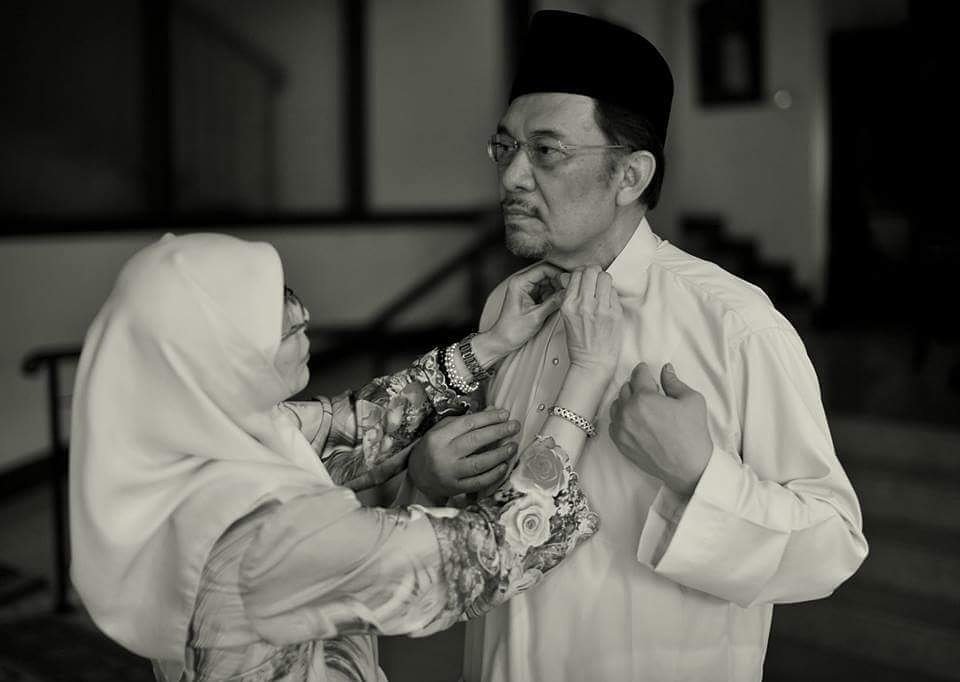
Pada 2016, Saravanamuttu, dalam bukunya, Power Sharing in a Divided Nation: Mediated Communalism and New Politics in Six Decades of Malaysia’s Elections, menyatakan politik baru sinonim dengan Gerakan Reformasi, dan kini telah mendapat tempat yang penting dalam penulisan pengajian Malaysia.
Ia dikaitkan dengan gelombang pendemokrasian di Malaysia yang menyaksikan penglibatan kuat rakyat biasa dalam proses pilihan raya di sisi aktivisme politik yang tidak pernah berlaku sebelumnya.
Menurut Saravanamuttu, pemecatan Anwar telah membuka pintu luas kepada participatory new politics yang dilambangi Gerakan Reformasi, yang mencetuskan penglibatan politik multi-etnik dan rentas-etnik yang tidak pernah berlaku sebelumnya dalam kalangan masyarakat sivil dan pembangkang.
Politik baru ialah politik partisipasi dalam ruang khalayak yang sedang berlaku yang bertujuan menegakkan nilai-nilai demokrasi dan hak asasi manusia yang mengatasi kepentingan etnik.
Perkembangannya melimpah ke proses pilihan raya, contohnya, keputusan Pakatan Rakyat yang memberangsangkan dalam PRU12 (2008) dan PRU13 (2013).
Hari ini, Politik Baru berlaku di banyak negara, termasuk negara Islam. Ted Piccone, dalam bukunya, Five Rising Democracies: and the fate of the international liberal order (2016) membicarakan lima demokrasi yang sedang meningkat: India, Brazil, Afrika Selatan, Turki dan Indonesia – Ibsati– negara-negara yang meninggalkan kolonialisme, aparteid dan diktator dan kini mengukuh dalam demokrasi berperlembagaan.
Manakala John L Esposito, Tamara Sonn dan John 0 Voll (Ed.) dalam bukunya, Islam and Democracy after the Arab Spring (2016) menyatakan “politik baru, iaitu gelombang keempat demokrasi menjadi kemungkinan global melalui perkembangan Arab Spring”.
Pada saya, bagi Anwar, politik baru bermula apabila beliau meninggalkan Abim untuk menyertai Umno untuk melakukan ‘reformasi dari dalam’. Selepas itu, beliau mempelopori Gerakan Reformasi dan memimpin pencapaiannya ‘yang tidak pernah berlaku sebelumnya’ itu. Hari ini, sebagai pengasas Forum Dunia Demokrat Muslim, beliau menjuarai idea ‘Demokrat Muslim’.- Datuk Saifuddin Abdullah,SH

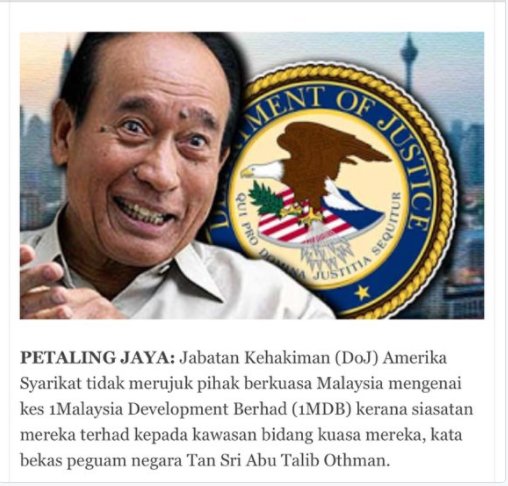
Pasaitu DOJ tak hubungi peguam UMNO
merangkap Peguam Negara..
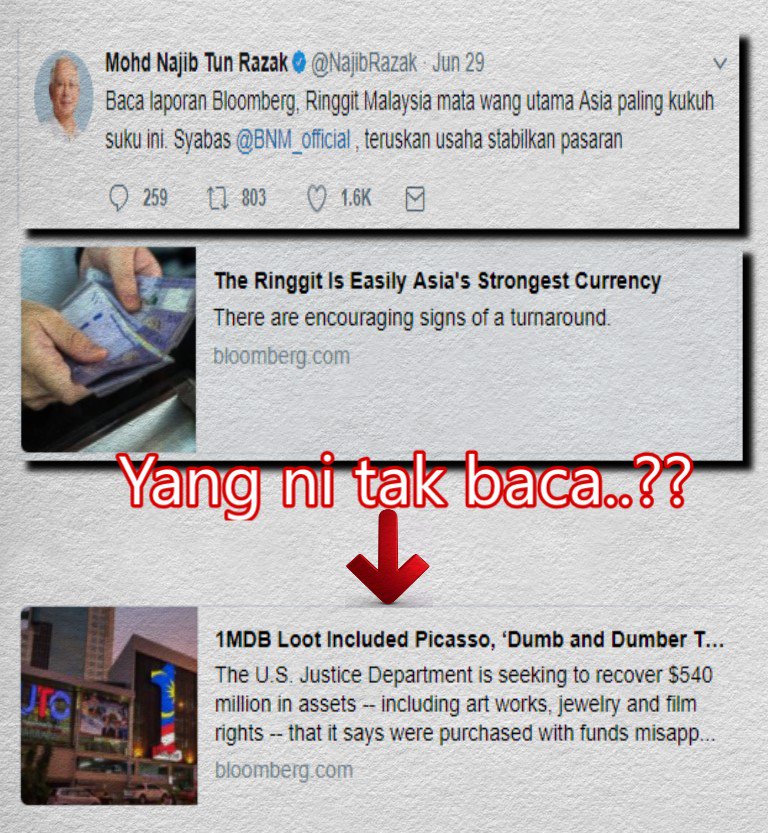

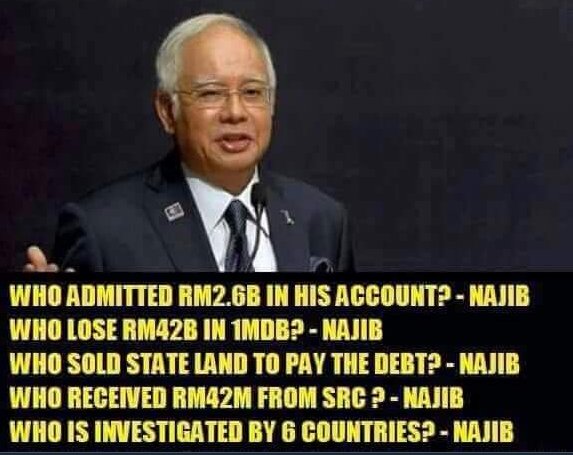



Lembu pun tau UMNO dengan PAS memang tengah
"hot" bercinta.Hangpa nak tipu sapa la woi.

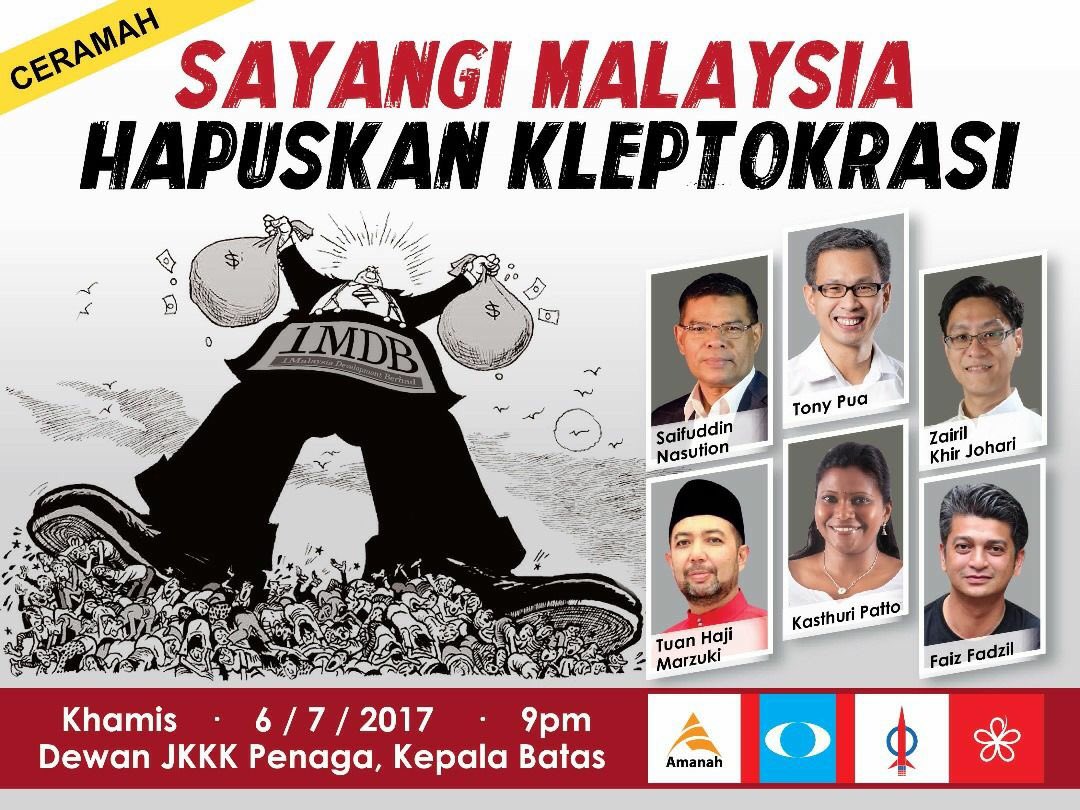


No comments:
Post a Comment